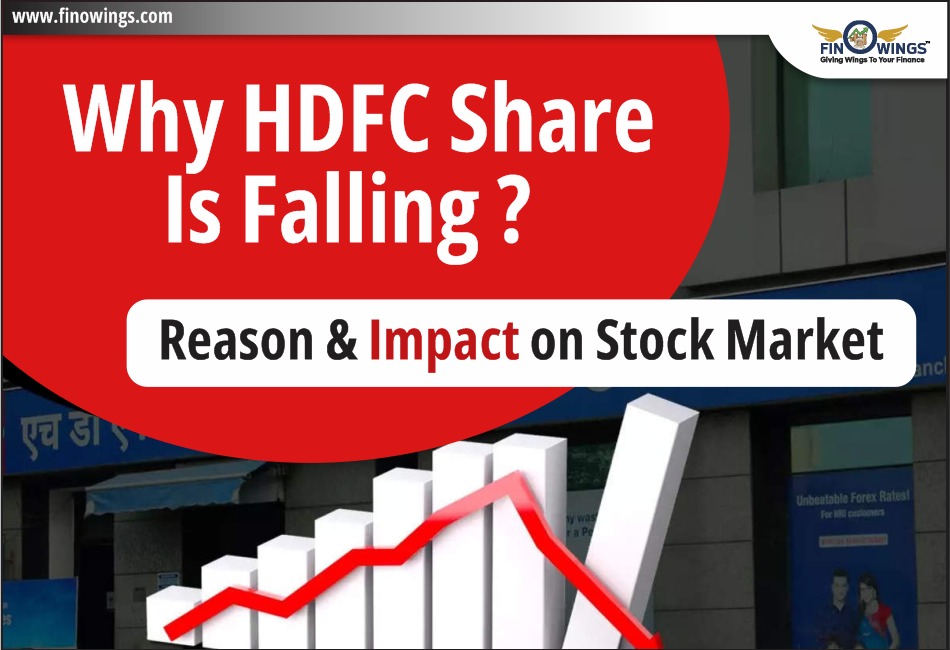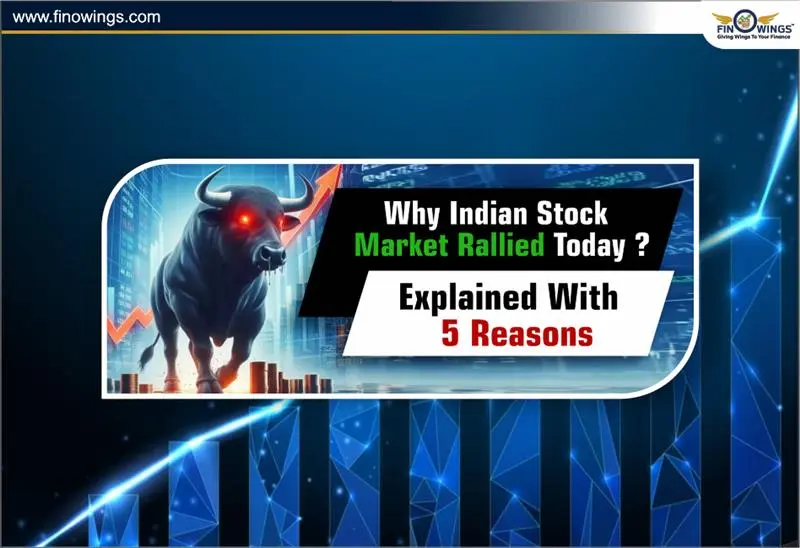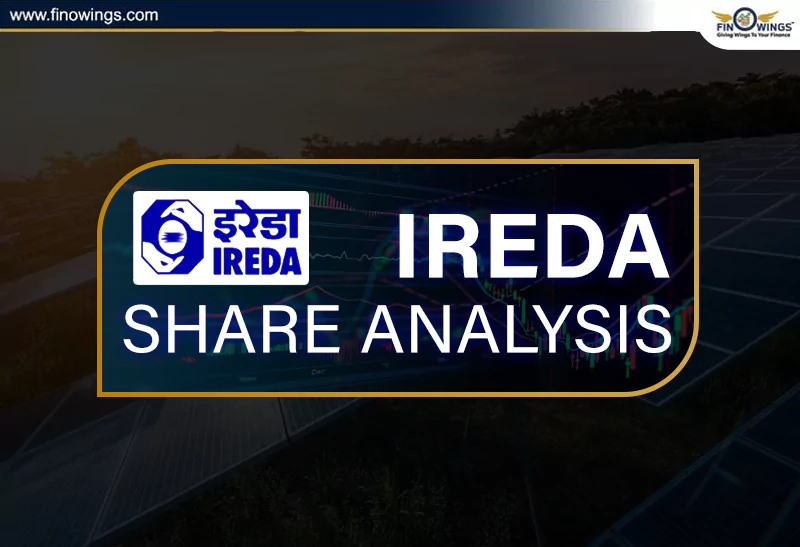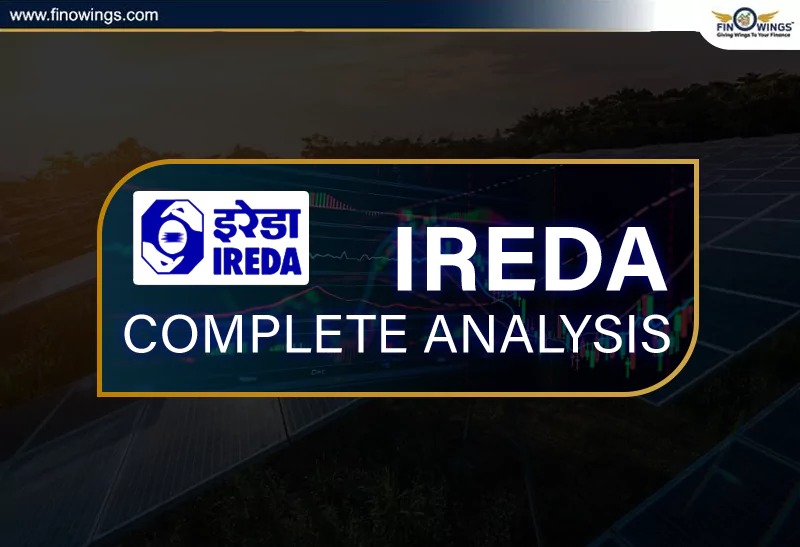Home >> Blog >> Why HDFC Share is Falling? Reason & Impact on Stock Market
Why HDFC Share is Falling? Reason & Impact on Stock Market

Table of Contents
Introduction
The finance world is so volatile that sometimes even the biggest players can face unexpected downturns. One recent example is HDFC Bank, which witnessed a significant drop of about 12% in its stock value in the last two days. Let's break down the situation and try to understand the reasons behind this unexpected twist in the financial tale in simple terms.
The Rapid Decline
Imagine a company losing a staggering One lakh crore in just one day. And the very next day another thirty-five thousand crore. That's what HDFC Bank faced in the last two days, experiencing its biggest drop in three years. The following day, the fall continued, leaving investors scratching their heads. So the biggest question arises what really triggered this sudden decline?
FPI Selling Pressure
Foreign Portfolio Investors (FPI) played a crucial role by selling shares worth a whopping 10,578 crores in a single day. Surprisingly, a substantial chunk of these shares, around 8,000 crores, belonged to HDFC Bank. But why did FPI decide to part ways with such a significant amount of shares?
Reasons Behind the Decline
Upon digging into the matter, it became clear that several factors contributed to HDFC Bank's downturn. One major player was the overall market sentiment affected by treasury yields and fed rates. These factors, combined with HDFC Bank's quarterly results, created the perfect storm.
The Quarterly Results
HDFC Bank recently shared its financial results for the last three months of 2023. The good news was that their profit went up by 2.5%, reaching Rs. 16,372.54 crores. However, the not-so-good news was that the increase in the money they make from loans was only 4%, which is not a lot. This made the value of the bank's shares go down in India and also caused a big drop of 6.71% in the New York Stock Exchange.
Even though the bank is India's biggest private bank, its earnings were a bit less than what experts expected. The bank's boss mentioned that there's not enough money flowing around in the system, and they need more people to put money in the bank for things to work smoothly. So, while the initial news seemed good, there were some challenges that affected how people feel about the bank's performance.
Understanding Banking Basics
To understand the situation, let's simplify how banks operate. Banks take money from people (like you and me), pay us interest, and lend that money to borrowers, making a profit. However, HDFC Bank faced a dilemma as people started withdrawing their deposits to explore alternative investments like real estate and gold.
The Domino Effect
As a consequence, HDFC Bank, like other banks, had to balance its lending rates carefully. Increasing these rates would drive away borrowers, jeopardising the bank's margins. The net interest margin, which was once at 4%, dropped to 3.4%, impacting the expected 8% growth in Net Interest Income.
Deposit Crisis
Another hurdle came in the form of inactive deposit growth. While the last quarter witnessed a 5% growth, the current quarter saw only a 2% increase. This, in turn, led to a significant rise in the company's provisions or cash expenses.
Global Factors and Brokerage House Opinions
Global factors and the sentiments of brokerage houses also played a role in the decline as the world's stock markets didn't look good, and this affected our country's stock market too. Asian markets were down, and the US stock market also closed lower because the interest rates on government bonds went up.
Some houses reduced their price targets, while others expressed concerns about HDFC Bank's fair valuations.
The Smart Moves
In the middle of this financial chaos, mutual funds made smart moves. Analysing December's data, it was evident that mutual funds strategically sold 2.54 crore shares of HDFC Bank during a period of rapid increase, safeguarding themselves from potential losses.
Conclusion
Understanding the HDFC Bank stock drop requires peeling back the layers of market dynamics, banking operations, and global influences. As investors ponder the next steps, it's essential to keep an eye on how HDFC Bank navigates these challenges in the ever-changing financial landscape. Only time will tell whether this setback is just a bump in the road or a pivotal moment in HDFC Bank's financial journey.
Disclaimer: This information is for informational purposes only and should not be considered as investment advice. Always do your research and consult with a financial advisor.
Frequently Asked Questions
The drop in HDFC Bank's stock value was influenced by several factors, including Foreign Portfolio Investors (FPI) selling shares worth 10,578 crores in a single day, impacting the overall market sentiment affected by treasury yields and fed rates.
Despite reporting a 2.5% increase in profit, HDFC Bank faced challenges as the growth in earnings from loans was only 4%. This, coupled with a drop of 6.71% in the New York Stock Exchange, led to concerns about the bank's performance and impacted its shares in the Indian market.
HDFC Bank experienced a dilemma as depositors withdrew their funds to explore alternative investments like real estate and gold. Balancing lending rates became crucial, as increasing rates could drive away borrowers, impacting the net interest margin and the expected growth in Net Interest Income.
Global factors, including the negative sentiments in world stock markets and the increase in interest rates on government bonds, influenced HDFC Bank's stock decline. Some brokerage houses reduced their price targets, expressing concerns about the fair valuations of HDFC Bank.
Mutual funds strategically sold 2.54 crore shares of HDFC Bank during a period of rapid increase, as indicated by December's data. This move was aimed at safeguarding themselves from potential losses amidst the market volatility.
Investors should consider the layers of market dynamics, banking operations, and global influences that contributed to HDFC Bank's stock drop. As the bank navigates these challenges, it remains to be seen whether the setback is a temporary bump or a pivotal moment in HDFC Bank's financial journey.
Liked What You Just Read? Share this Post:
Viewer's Thoughts
Raj Surana | Posted on 18/01/2024
Is this a buying opportunity




















Ayaz Ahmad | Posted on 18/01/2024
Bank ke karamchsriyon ka behaviour acha nahi hai. Jiske karan log bank se lenden Kam karne Lage Hain.